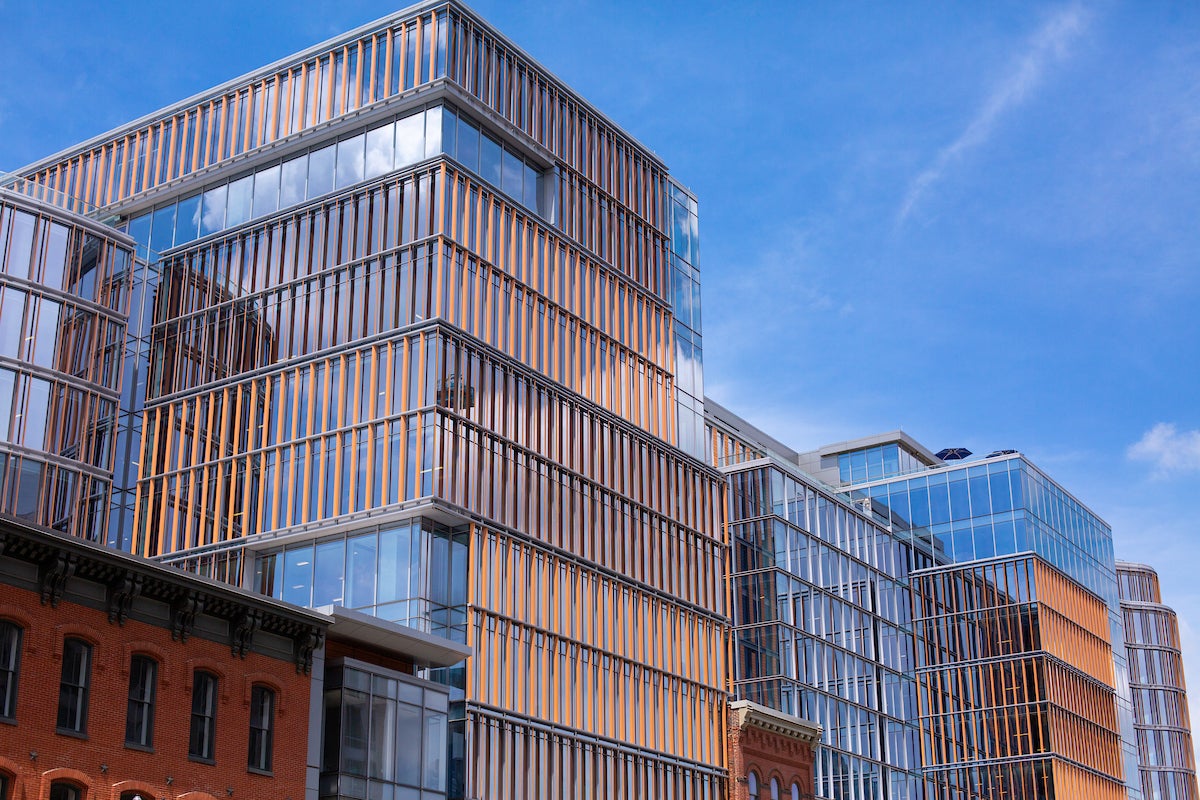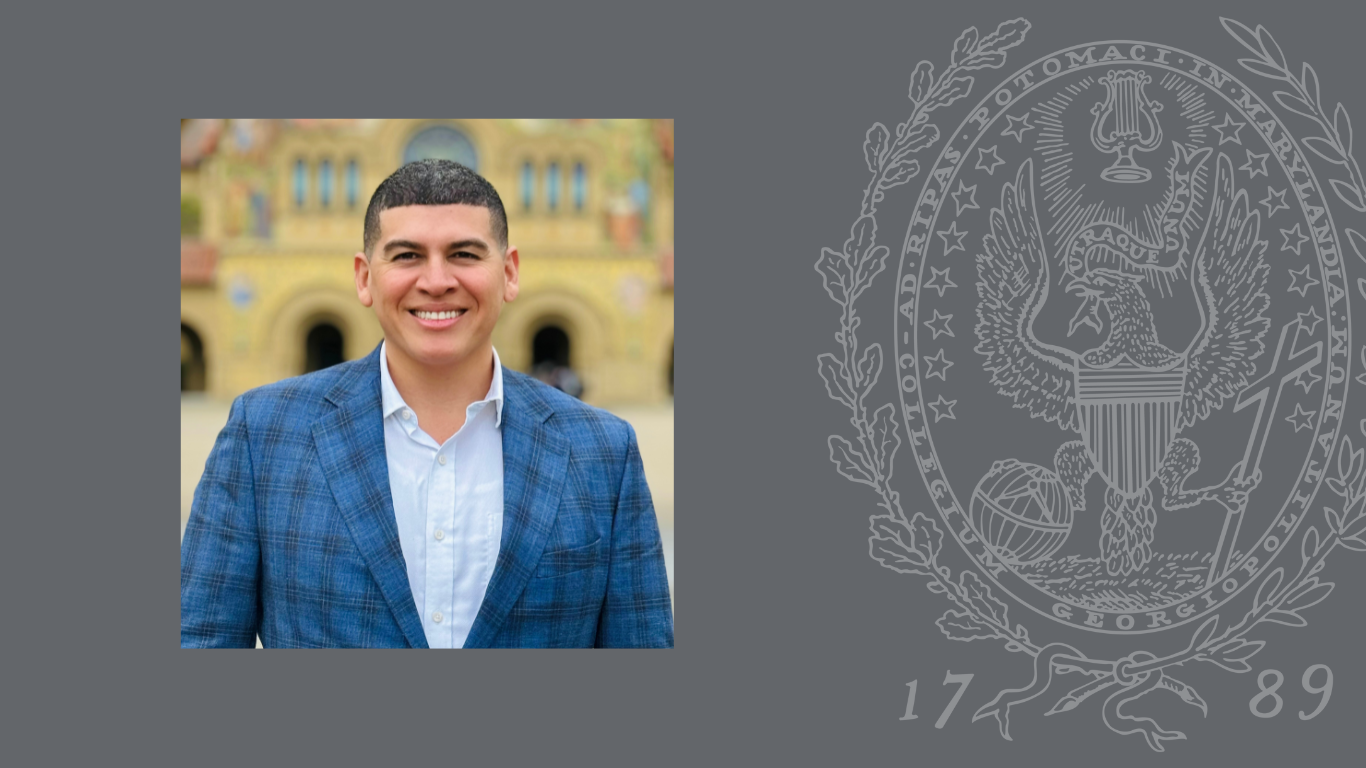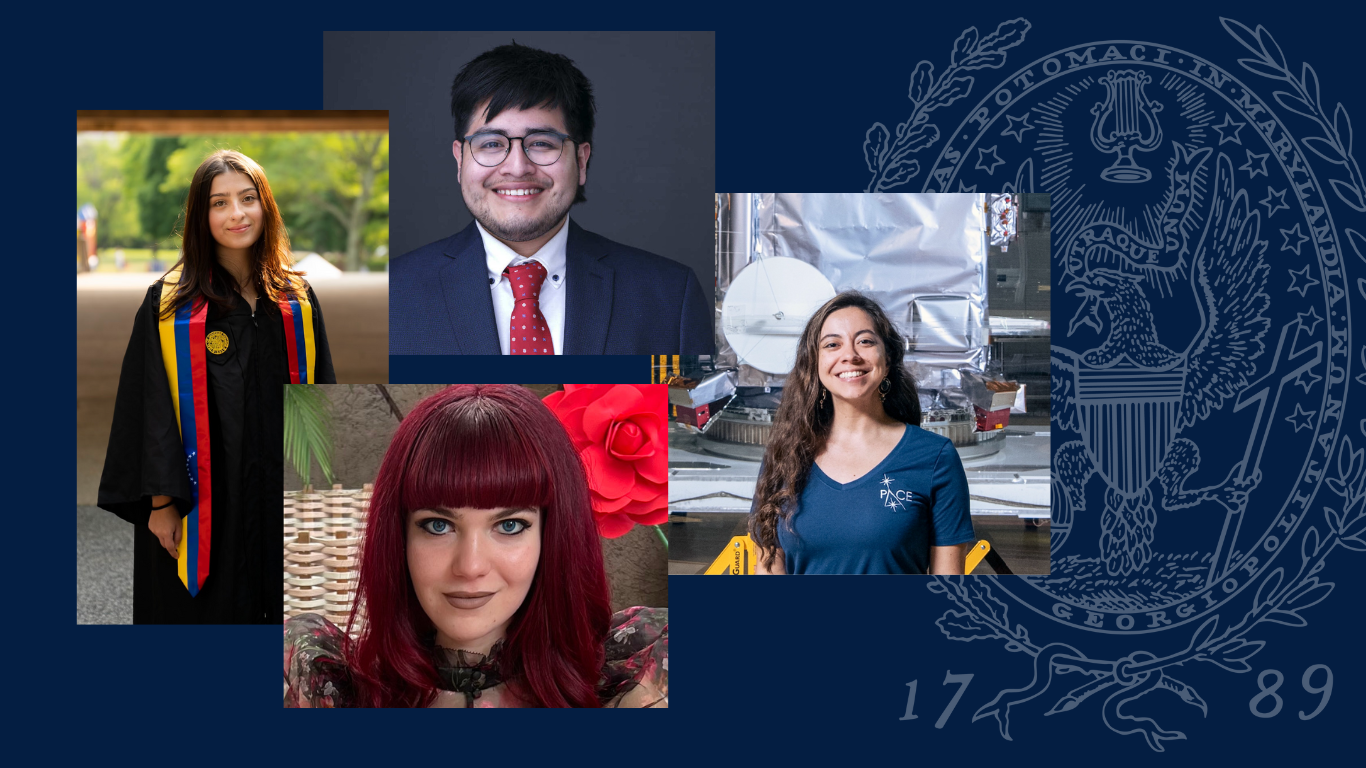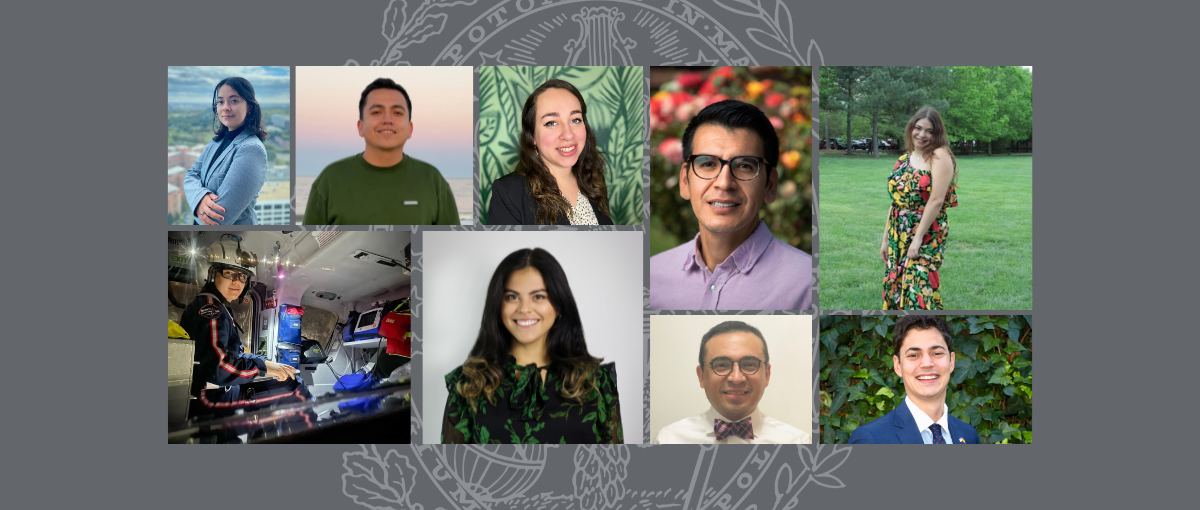Rethinking Research: Latin America Through The Eyes of a Brazilian Specialist and Argentinian Historian
During Hispanic Heritage Month, as we celebrate accomplishments by Latinx and Hispanic individuals, it is also important to recognize the ongoing research efforts on countries in Latin America.
Meet two doctoral students conducting research on the history of local and international migration and regional agriculture and its wider effects in Latin America.
A Brazilian Specialist in Qatar
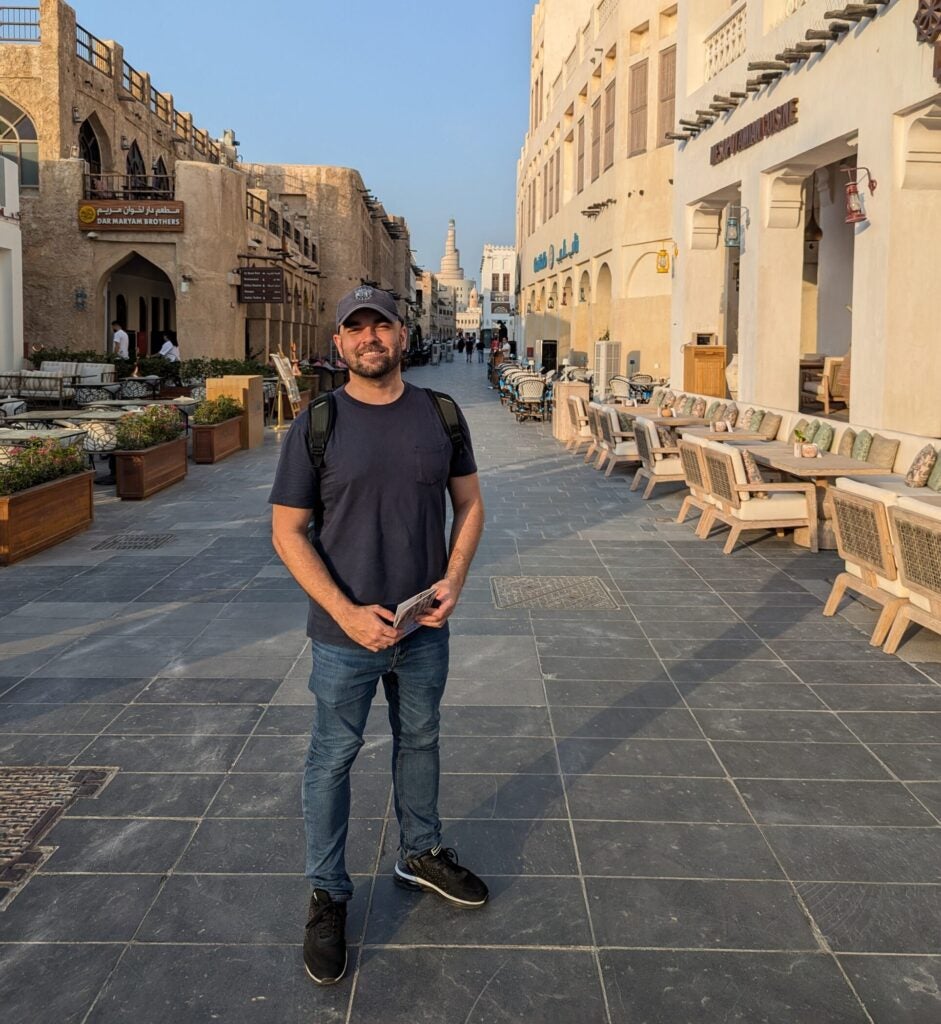
João Sodré in the souq (market) in Qatar
João Sodré (G’25) is spending the final year of his Ph.D. program in history away from the Hilltop. He is one of four inaugural fellows and teaching associates serving on the Georgetown University-Qatar campus. Sodré came to Georgetown from Rio de Janeiro, Brazil, to work with Professor Bryan McCann, a specialist on modern Brazil, as well as to live in Washington, DC, a city rich with global connections and a diversity of cultures.
Sodré’s research interests are centered in the late 20th century around the final years of Brazil’s military dictatorship and on issues of agency and repression at the time.
“I am particularly interested in discussions on inequality, politics of identity and current-day legacies of the past–slavery and its afterlives, the implications of authoritarianism, etc.,” he noted. “History is an interesting field, because it connects to other areas of knowledge, and allows us to think more closely about change over time.”
He hopes that his contributions from a historical perspective on themes typically reviewed by other disciplines, like political science, sociology and anthropology, will “expand [the] body of historical literature on Latin America and on Latine issues in the U.S.”
“History is an interesting field, because it connects to other areas of knowledge, and allows us to think more closely about change over time.”
– João Sodré
In particular, Sodré notes that many Brazilians living in the U.S. emigrated in the 1980s during times of economic insecurity in Brazil.
“They’re a minority within a minority in the U.S.,” Sodré says, “but their histories and home country’s stories still deserve to be told.”
In the classroom, Sodré has used his research to discuss issues of authoritarianism and positive issues arising from democratization.
“This leads to interesting discussions on how we should consider Latin America’s centuries of struggles but also acknowledge many of its contributions,” he says. “Brazil is one of the largest democracies in the world.”
In turn, Sodré hopes further discussions will help break up generalized negative assumptions about the region and force the public to reflect on their own biases.
As a Brazilian, Sodré identifies as Latino but not as Hispanic, though as someone who has spent seven years in the U.S. for his master’s and now Ph.D., he notes that he was often seen as both. “Many Brazilians question the Hispanic ascription, given that we speak Portuguese, and not Spanish,” says Sodré. “I think this gives us an opportunity to think of the diversity of communities in the United States and Latin America, and to re-think the term ‘Hispanic’ itself.”
An Argentinian Researcher in the U.S.
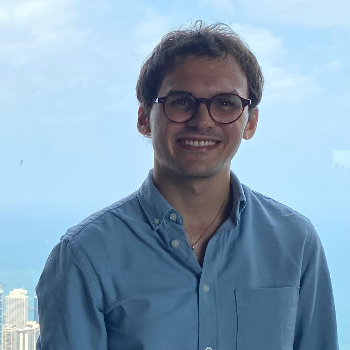
Santiago Bestilleiro Lettini
Santiago Bestilleiro Lettini (G’26) came from Argentina to the U.S. to complete his Ph.D. in history. He wanted to broaden his research perspective on the Río de la Plata prairies – which extends over present-day eastern Argentina, Uruguay and southern Brazil – beyond his university studies in Argentina. Bestilleiro Lettini’s work aligns closely with his advisor, Professor Erick Langer, who has been a source of encouragement to pursue rigorous and innovative work.
Bestilleiro Lettini enjoys the ways the department actively encourages interdisciplinary dialogue and the school’s location in DC to libraries and archives that are crucial for his research work. He is currently working on his dissertation, which studies the political, economic and environmental trajectory of the grasslands of the Río de la Plata in the long 19th century (1770s-1910s).
“The region experienced profound transformations that historians have frequently studied,” Bestilleiro Lettini notes, “but mostly within national frameworks. We still need a work that considers the region as a whole, because these countries were the result of historical processes, not of historical necessity.”
Views about this location shifted over time from a place of great risk to great reward as it became known for its valuable agriculture assets within the Atlantic markets. These were also decades of important political change, says Bestilleiro Lettini.
“During the state formation process, military control of the region – especially of indigenous territories – internal and international immigration, and the incorporation of technology and infrastructure profoundly contributed to the transformation of this biome,” he said.
“We still need a work that considers the region as a whole, because these countries were the result of historical processes, not of historical necessity.”
– Santiago Bestilleiro Lettini
With grant funding and access to archival resources, Bestilleiro Lettini has been collecting primary sources to support his research, in addition to attending conferences to present his findings to other scholars both locally and globally. He hopes that his research adds to the cannon of Latin American history by providing a more transnational perspective.
The challenge when opening these narratives to non-academic audiences, Bestilleiro Lettini notes, is “to transmit historical contingency to think about how nations came into existence.” In his eyes, this could be a valuable lesson: leading to greater civic understanding of life in community and risks of nationalism.
“This is, above all, a didactic process that only rigorous historians can lead, but that requires a narrative that is appealing to non-specialist readers,” says Bestilleiro Lettini. “I think it is both possible and necessary.”
